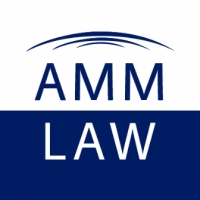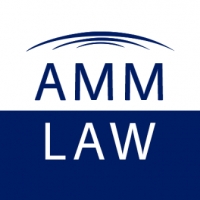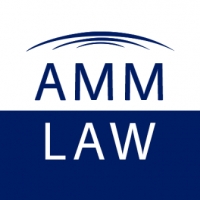Patricia Collins, Employment Partner at Antheil Maslow & MacMinn, LLP, will be a presenter at the Well Employees = Well Business: Best Practices and Legal Considerations Event of CBCC’s Health and Wellness Committee on June 14th – 8:30 – 10:00 a.m. at CB Chamber Headquarters. Also speaking will be Megan Duelks, CoE Employee Health Innovation of Johnson & Johnson Global Health Services. Pamela J. Ginsberg, Ph.D., staff psychologist at Doylestown Health will facilitate the presentation. The program, for employers, is focused on creating a culture of caring to improve productivity, wellness and joy in the workplace. It is free to attend and open to the community and Chamber members alike. Registration for this informative event is at centralbuckschamber.com.
On July 4, 2018, recent changes to the Pennsylvania custody law will go into effect. These laws take into account changes in the family structure and the expansion of classes of individuals who may qualify to file for physical or legal custody of minor children.
The new class of individuals (third parties) who will have standing to file for custody must meet all of the following criteria as set forth in 23 Pa. C.S. 5324: 1. The individual has assumed or is willing to assume responsibility for the child; 2. The individual has a sustained, substantial and sincere interest in the welfare of the child; and, 3. Neither parent has any form of care and control of the child.
In order to have standing, the individual must prove all three criteria by clear and convincing evidence, which is a high burden of proof. Presumably, the burden is high to ensure that the child is protected and does not end up in the custody of someone unsuitable. This opens up the possibility for neighbors, family friends, aunts and uncles or even sports coaches being awarded custody of children. The law also has a further limitation in that, if there is a dependency proceeding, meaning that there is a pending dependency petition alleging that the child(ren) is without proper parental care and should be supervised by the court, then the above criteria will not apply.
It should be noted that grandparents could have standing under two sections of the Custody Code. While grandparents and great-grandparents may have standing under 23 Pa. C.S. Section 5324, above, they may also have standing to seek partial physical custody or supervised physical custody of their grandchildren or great-grandchildren under 23 Pa. C.S. 5329. There have been changes to this section that will be effective July 4, 2018 as well. Case law previously struck the sections that allowed for grandparents’ standing if the parents of the child(ren) were separated for at least six months or were getting divorced. This is because it is unconstitutional for intact families and families that are not intact to be treated differently. The new revisions reflect that case law, and also strike those sections, but also added an additional section to allow for grandparent standing: 1. Where the relationship with the child began either with the consent of a parent of the child or under a court order and where the parents of the child: A. Have commenced a proceeding for custody; and, B. Do not agree as to whether the grandparents or great-grandparents should have custody under this section.
Essentially this change allows a grandparent or great-grandparent who has an existing relationship with the grandchildren or great-grandchildren to be added as a party to a custody proceeding when the parents of the child cannot agree if the grandparent or great-grandparent should have any custody.
The final change to 23 Pa. C.S. 5329 changes the word parent to party in the section for consideration of criminal conviction. The court must consider criminal convictions and make sure that there is no threat to the child(ren) before entering a custody order. This consideration relates to entering an order of custody to a party (not just a parent) who does have certain criminal convictions.
The timing of these changes to the custody law coincides with the rise of the opioid epidemic both nationwide and in the local area specifically. Sadly, there has been a rise in the past few years of parents battling drug addiction and unable to care for their children, to the extent that Pennsylvania legislators have felt compelled to address the impact of this crisis on minor children. These changes to the custody law increase the potential third parties who could seek to assume custody of the children in these situations. The changes in the law reflect the reality that some of these third parties may already be caring for the child, but did not have standing to file for physical and/or legal custody previously. As of July 4, 2018, they will be able to do so.
Attention Importers and Retailers: Move Quickly to Remove Turkmen Cotton from Your Supply Chains
Written by Susan MaslowRetailers, Importers, and brands need to immediately be sure there is no cotton from Turkmenistan in their supply chains. The U.S. Customs and Border Protection (CBP) has finally announced it will turn away or seize and withhold any shipments of cotton originating in the Central Asian nation of Turkmenistan. Affected importers will clearly experience a significant, and probably costly, disruption of production- related procurement. The International Labor Rights Forum (ILRF) urged the U.S. to ban Turkmen cotton two years ago but was rejected until findings of state-enforced slave labor was documented after extensive investigation.
CBP was given the authority to ban tainted products like cotton from Turkmenistan when The Trade Facilitation and Trade Enforcement Act of 2015 (TFTEA) removed the “consumptive demand” exception to the United States Tariff Act of 1930, a commonly exploited loophole to the prohibition against importing products of forced labor. Prior to the new provision, CBP used the law only 39 times since 1930 to apprehend goods tainted at some point from creation to delivery by forced labor. Since the passage of TFTEA, CBP has issued four new Withhold Release Orders (each a WRO) on specific goods from China (soda ash, calcium chloride, and caustic soda from Tangshan Sanyou Group and its subsidiaries on March 29, 2016; potassium, potassium hydroxide, and potassium nitrate from Tangshan Sunfar Silicon Industries also on March 29, 2016; Stevia and its derivatives from Inner Mongolia Hengzheng Group Baoanzhao Agricultural and Trade LLC on May 20, 2016; and peeled garlic from Hangchange Fruits & Vegetable Products Co., Ltd. on September 16, 2016).
A March 31, 2017 Executive Order establishing enhanced collection and enforcement of antidumping and countervailing duties and violations of trade and customs laws authorized the Secretary of Homeland Security, through the commissioner of CBP, to develop implementation plans and a strategy for interdiction and disposal of inadmissible goods and to develop prosecution practices to treat significant trade law violations as a high priority.
Although 2017 saw more antidumping and countervailing duty orders and intellectual property rights protection activity under TFTEA, there have been no published detentions prior to the ban of any shipments of Turkmen cotton, although CBP pledged to the U.S. Congress that more import bans under section 307 would be forthcoming. Perhaps this is just the beginning of a long awaited CBP crack-down on forced labor imports to combat human rights abuses in global supply chains.
AMM congratulates our 2018 Super Lawyer and Rising Star attorneys named in the 2018 Super Lawyer listing by Thomson Reuters.
Jessica Pritchard, chair of the firm’s Family Law practice group, was named one of the “Top 50 Women” again this year, and one of Philadelphia’s Top 100 attorneys by the publisher of Pennsylvania Super Lawyers magazine. Ms. Pritchard has been included in the Super Lawyer listing for the past four years.
Elizabeth Fineman, an associate in our Family Law department, was named a 2017 Rising Star by the same publication for the sixth year.
Both Pritchard and Fineman concentrate their practices exclusively in Family Law. Super Lawyers is a rating service of outstanding lawyers from more than 70 practice areas who have attained a high-degree of peer recognition and professional achievement. This selection process includes independent research, peer nominations and peer evaluations. To learn more, please visit www.superlawyers.com.
AMM congratulates our 2018 Super Lawyer and Rising Star attorneys named in the 2018 Super Lawyer listing by Thomson Reuters.
Jessica Pritchard, chair of the firm’s Family Law practice group, was named one of the “Top 50 Women” again this year, and one of Philadelphia’s Top 100 attorneys by the publisher of Pennsylvania Super Lawyers magazine. Ms. Pritchard has been included in the Super Lawyer listing for the past four years.
Elizabeth Fineman, an associate in our Family Law department, was named a 2017 Rising Star by the same publication for the sixth year.
Both Pritchard and Fineman concentrate their practices exclusively in Family Law. Super Lawyers is a rating service of outstanding lawyers from more than 70 practice areas who have attained a high-degree of peer recognition and professional achievement. This selection process includes independent research, peer nominations and peer evaluations. To learn more, please visit www.superlawyers.com.
AMM congratulates our 2018 Super Lawyer and Rising Star attorneys named in the 2018 Super Lawyer listing by Thomson Reuters.
Jessica Pritchard, chair of the firm’s Family Law practice group, was named one of the “Top 50 Women” again this year, and one of Philadelphia’s Top 100 attorneys by the publisher of Pennsylvania Super Lawyers magazine. Ms. Pritchard has been included in the Super Lawyer listing for the past four years.
Elizabeth Fineman, an associate in our Family Law department, was named a 2017 Rising Star by the same publication for the sixth year.
Both Pritchard and Fineman concentrate their practices exclusively in Family Law. Super Lawyers is a rating service of outstanding lawyers from more than 70 practice areas who have attained a high-degree of peer recognition and professional achievement. This selection process includes independent research, peer nominations and peer evaluations. To learn more, please visit www.superlawyers.com.
I had the pleasure of revisitng the issue of training to avoid or address harassment and discrimination in the workplace at the Lower Bucks Chamber of Commerce ECONference 2018 on May 23, 2018. The questions from participants reminded me that training is a valuable tool not only for risk prevention, but also to improve workplace culture.
Training has become a “check the box” activity: the employer gets to say that it provided training, in the event of a claim. The employees are required to attend in order to keep their jobs, and so they attend and zone out. Employer and employees are going through the motions. The lawyers told them to train, so the employer is training.
Here’s what I’ve learned: the serious offenders, those who engage in serial harassment, inappropriate relationships or even assault, are going to engage in that behavior no matter what training you provide. An employee who lacks the insight to know that certain behaviors are unacceptable (everywhere, really) will not have an epiphany during mandatory employee training. One-on-one training often helps in these situations, but not always, and not fundamentally (that is, the employee will know what to do to stay employed, but will not really care that the behavior was inappropriate).
Employers should provide training – it is good risk management for certain employers. But, perhaps it should be a more sincere activity on both sides: employers should consider more interactive training, smaller groups and individualized training for departments. Employers should engage in self-evaluation of workplace culture prior to planning the training.
Further, if the goal is prevention of harassment, hostile work environment claims or other unacceptable workplace behaviors, generalized training is not always the answer. Instead, employers should remember that culture comes from the top. If officers, supervisors and managers maintain professionalism, it sets the tone. It might be valuable to warn and provide one-on-one training to managers who do not demonstrate professional behavior, but in the end, appropriate workplace behavior should be a qualification for any leadership role.
No lawyer will ever advise an employer not to provide training, but perhaps it is time to be more thoughtful about what training looks like for specific employees. Avoiding litigation cannot be the only goal, or the training will never work. I frequently work with employers to come up with meaningful training plans that comply with the law, and are appropriate for their business.
Tattletale: Supply-Chain Investigations and the Attorney-Client Privilege
Written by Susan MaslowGoods Tainted by Forced Labor
Reprinted with permission from Business Law Today April 2018.
The global fight against child labor and forced labor has been led for decades by the International Labor Organization (ILO). The ILO’s most recent estimate is that 25 million people around the world, including millions of children, are currently subjected to forced labor. Under U.S. law, section 307 of the Tariff Act of 1930 prohibits the importation of merchandise mined, produced, or manufactured, wholly or in part, in any foreign country by convict, forced, or indentured labor. This law gave the U.S. Customs Service (now the U.S. Customs and Border Protection (CBP)) authority to seize commodities imported into the United States where forced labor was suspected to have been used anywhere in the supply chain.
The Tariff Act defines “forced labor” as “all work or service which is exacted from any person under the menace of any penalty for its nonperformance and for which the worker does not offer himself voluntarily.” Products of forced labor include goods that were produced by convicts and indentured laborers. The ILO defines forced or compulsory labor as service that involves coercion—either direct threats of violence or more subtle forms of compulsion under the menace of any penalty. Goods made by child labor, defined as work that deprives children of their childhood, their potential, and their dignity and that is harmful to their physical and mental development, are included in the forced-labor prohibition especially when combined with any form of indenture. Such tainted merchandise is subject to exclusion and/or seizure by the CBP, may lead to corporate criminal liability, and could even support prosecution of culpable employees individually.
The Trade Facilitation and Trade Enforcement Act of 2015 (TFTEA) removed the “consumptive demand” exception to the United States Tariff Act of 1930, which was a commonly exploited loophole to the prohibition against importing products of forced labor. Prior to the new provision, CBP used the law only 39 times since 1930 to apprehend goods tainted at some point from creation to delivery by forced labor. Since the passage of TFTEA, CBP has issued four new Withhold Release Orders (each a WRO) on specific goods from China. Although 2017 saw more antidumping and countervailing duty orders and intellectual property rights protection activity under TFTEA, there have been no published detentions to date, although CBP has pledged to the U.S. Congress that more import bans under section 307 are forthcoming.
Sue Maslow and Jamie Jamison of Antheil Maslow & MacMinn participated in the Bucks County Bar Foundation' s Learning with Lawyers program. The program is tailored to 5th grade elementary students in Bristol Borough School District. The Foundation provided each student with a copy of If You Were There When They Signed the Constitution which was discussed in the classroom.
The Bucks County Bar Foundation is the charitable arm of the Bucks County Bar Association. Its mission is to promote and support programs, organizations, and individuals throughout Bucks County who are engaged in activities designed to foster respect for the rule of law, the advancement of rights, liberties and protections under the law as well as activities which have as a principal purpose the advancement of social justice for the individuals, families and communities of Bucks County.
Supreme Court Finds ‘Service Advisors’ Exempt from Overtime Rules
Written by Patricia CollinsReprinted with permission from the April 18th, 2018 issue of The Legal Intelligencer. (c) 2018 ALM Media Properties. Further duplication without permission is prohibited.
The Supreme Court’s decision in Encino Motorcars, LLC v. Navarro interprets a very specific exemption to the overtime rules imposed by the Fair Labor Standards Act, 29 U.S.C. 201, et seq. (“FLSA”), but the Court’s language and reasoning have game-changing ramifications. The Court’s rejection of the principle that courts should narrowly construe exemptions to the FLSA turns decades of FLSA caselaw on its head.
The facts of Encino Motorcars are deceptively narrow. Employees classified as service advisors for a car dealership challenged the car dealership’s classification of the service advisors as exempt from the FLSA. The FLSA requires that employers must pay overtime to employees who work more than 40 hours in a week. 29 U.S.C. § 207(a). The dealership claimed the exemption under a statutory exemption that applies to car dealerships. 29 U.S.C. § 213. Specifically, the section in question exempts from overtime pay requirements:
Any salesman, partsman, or mechanic primarily engaged in selling or servicing automobiles, trucks, or farm implements, if he is employed by a nonmanufacturing establishment primarily engaged in the business of selling such vehicles or implements to ultimate purchasers.









